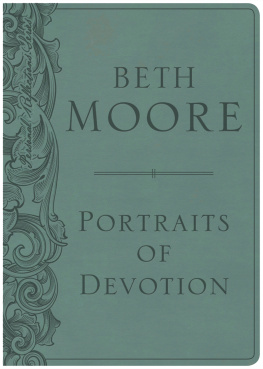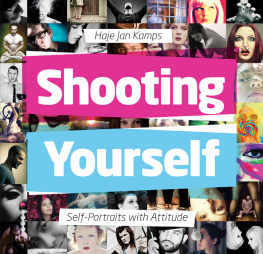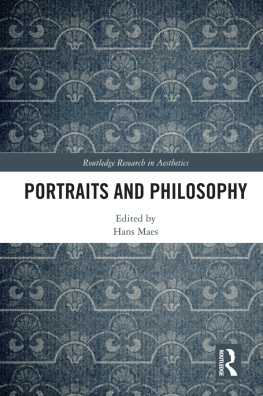
What is it like being a mixed race, non-binary anthropologist delving into todays world of anarchist organizing, feminism, and queer radicalism converged with partying and artmaking? McGlottens book Dragging: Or, in the Drag of a Queer Life is set mostly in Berlin and Israel. They center not only men performing some version of femininity but also two drag kings and two wildly radical cis gendered women artists. The book is a fascinating mashup of memoir, interview, ethnographic observation, and cultural theory, following on the work of Jos Munoz, Marlon Baily, Lauren Berlant, Eve Sedgwick, and others. McGlotten traces the origins of todays drag scene from the performances that I documented just before Stonewall in Mother Camp, through the ball scene in Paris is Burning and takes care to set their performers and drag scenes in relation to and contrast with Ru Pauls commercially successful Drag Race.
Esther Newton, Professor Emerita of Anthropology, PurchaseCollege, author of Mother Camp, Margaret Mead Me Gay, and My Butch Career
Riveting, beautiful, and necessary, this book is in no small part a meditation on failure and on what happens when life gets in the way of research. The reality of living in a bodyany body, but especially an unwell body, a marginalized bodyis one that academia has long refused to confront but can no longer afford to ignore in these fascist times. McGlottens dragging methods are confrontational and gritty and refuse to shrink in the face of calls for civility and respectability that have become commonplace in U.S. university culture. It is life-affirming work.
Katie Horowitz, Assistant Professor, Gender & SexualityStudies Program, Davidson College
Dragging
Dragging: Or, In the Drag of a Queer Life is an assemblage of fragments that collectively tell stories about a diverse group of artists and activists for whom drag serves as inspiration, method, object, and aim.
Methodologically grounded in ethnography, Dragging incorporates auto-theoretical material that lays bare the intimacies of research, teaching, and loving, as well as their painful failures. Drag is more than gender impersonation, and it is more than resistance to norms. It is productively messy and ambivalent, and in these and other ways can serve to attune us to political and aesthetic alternatives to the increasingly widespread desire to be led.
One of very few books about drag by an anthropologist, and using a uniquely personal approach, Dragging is an ethnography of artists and activists.
Shaka McGlottencontent is Professor of Media Studies and Anthropology at Purchase College-SUNY. They are the author of Virtual Intimacies: Media, Affect, and Queer Sociality and dozens of chapters and articles. Their work has been supported by the Alexander von Humboldt Foundation, Akademie Schloss Solitude, Creative Capital / Andy Warhol Foundation, and Data & Society.
First published 2022
by Routledge
605 Third Avenue, New York, NY 10158
and by Routledge
2 Park Square, Milton Park, Abingdon, Oxon OX14 4RN
Routledge is an imprint of the Taylor & Francis Group, an informa business
2022 Taylor & Francis
The right of Shaka McGlotten to be identified as author of this work has been asserted by them in accordance with sections 77 and 78 of the Copyright, Designs and Patents Act 1988.
All rights reserved. No part of this book may be reprinted or reproduced or utilised in any form or by any electronic, mechanical, or other means, now known or hereafter invented, including photocopying and recording, or in any information storage or retrieval system, without permission in writing from the publishers.
Trademark notice: Product or corporate names may be trademarks or registered trademarks, and are used only for identification and explanation without intent to infringe.
Library of Congress Cataloging-in-Publication Data
A catalog record for this title has been requested
ISBN: 978-1-138-19024-5 (hbk)
ISBN: 978-0-367-43952-1 (pbk)
ISBN: 978-1-315-64119-5 (ebk)
DOI: 10.4324/9781315641195
This book was generously supported by the Alexander von Humboldt Foundation and Akademie Schloss Solitude. Beate Binder served as my sponsor for the Humboldt Award and graciously provided space for me to work at the Institute for European Ethnology at Humboldt University in Berlin, where I wrote many of this books earliest portraits. At the Institute, I was lucky to share an office with Gabriele Dietze, who, like Beate, is a pioneer in Gender Studies in Germany and always had something interesting to say. My research assistant Patrick Wielowiejski was invaluable, helping me to clarify my ideas, as well as doing a lot of the leg work that helped me orient myself in Berlins queer scenes. Dennis Eckhardt provided initial early contacts with drag performers.
I presented portions of the project at Bowdoin College, the University of Manchester, the University of Sussex, the Institute for Cultural Inquiry in Berlin, and Central Washington University. I thank Sara Dickey, Andrew Irving, Jacqueline Stacey, Michael Atkins, Sharif Mowlabocus, Samuel Solomon, Renate Lorenz, and Christoph Holzhey, for their invitations, and the audiences for their always thoughtful feedback.
There are people without whom I wouldnt be able to think or write especially well, who offered friendship, patiently listened to me as I struggled with this work, read and re-read portions of the project, and paved the way to make it possible in the first place: Henry Abelove, Marlon Bailey, Bill Baskin, Lauren Berlant, Fred von Bose, Dna-ain Davis, Neville Hoad, Katrien Jacobs, Dominik Kleinen, Esther Newton, Tavia Nyongo, Todd Sekuler, Heiner Schulze, Xiarong Ziang. Im surely omitting others. Nontsikelelo Mutiti very kindly offered her design expertise, even though her suggestions couldnt make it into the final product. Scott Webel still slays when it comes to editing. Martin Kraeling was the best tandem language partner ever and introduced me to Sebastian Hanft, who in turn introduced me to Kay P. Rinha. I broke through those blocks writers suffer through with Deniz Utlu, fellow Solituder, in Hermans Library at the Akademie. Jack Giesking read the whole thing and provided me with some key insights that helped me understand my own book better. Mareen Wrobel came in at the very end to help me think about how design might improve a readers experience. Thanks go as well to the reviewers of the book. One in particular embraced the project and gave the kind of feedback every writer hopes to hear: this is great just as it is.
And Ive still got the very best colleagues and friends at Purchase College, who help me to feel like being at work isnt hard at all: Linda Bastone, Rudi Gaudio, Matthew Immergut, David Kim, Kristen Karlberg, Jason Pine, Lorraine Plourde, Michelle Stewart, and Agustin Zarzosa. Lisa Jean Moore has been the best friend and mentor one could hope for.
I have been very fortunate to receive support from Purchase College in other ways, as well, namely in the form of leaves and faculty awardsI thank the administrators and award committee members who helped make this possible. Suzanne Kessler in particular helped in visible and, I later learned, invisible ways to support my career at the college.
The original ideas for this book emerged from my long-term relationship with Brunhilde (a pseudonym of his choosing), and although our marriage ended, I am grateful for all of the things I learned from him, and, to boot, he read every early draft and always helped me to improve in innumerable ways whatever I had written. My friendships with Atalya Tirosh and Bnaya Halperin held me in love when I needed it most.







